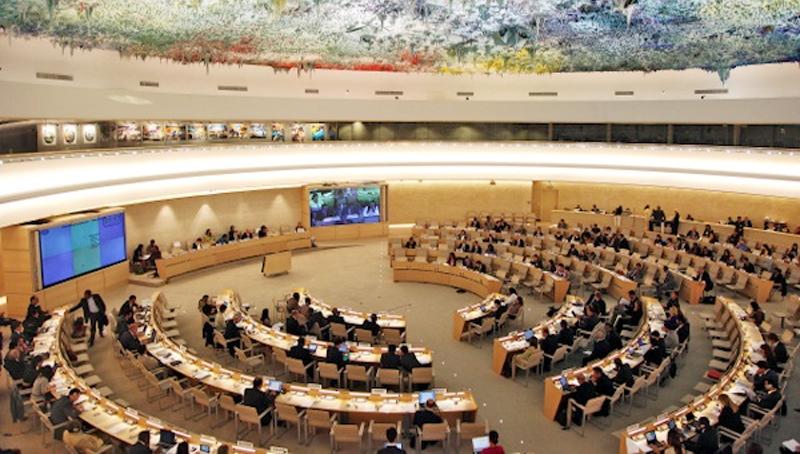
Commenting on President Maithripala Sirisena’s statement to renegotiate accountability obligations, a senior Foreign Ministry official said Sri Lanka may have to renegotiate Resolution 30/1 with the co-group that sponsored the Resolution in 2015, if it is to get a fresh set of recommendations approved by the UN rights body recalling the former resolution.
President Sirisena addressing media heads on Friday said he plans to present a set of fresh proposals to the UN Human Rights Council, asking for space to amicably resolve the accountability issues, emanating from the last stages of the war that crushed the separatist LTTE.
The co-group that sponsored the 30/1 resolution is now chaired by the UK following the withdrawal of the US from the UNHRC in June, accusing the UN’s top rights body of ‘chronic bias’ against Israel. The Resolution 30/1 was originally drafted by the US with Sri Lanka and 42 other countries co-sponsoring it. It recalled UNHRC Resolutions 19/2 of March 2012, 22/1 of March 2013 and 25/1 of March 2014 on promoting reconciliation and accountability in Sri Lanka and granted a two year extension to meet international accountability obligations.
“Although US is not technically a member, it will exert influence from outside,” the sources said voicing that the task ahead will not be easy.
A new Resolution would mean having informal consultation on a text that the core-group would draft and there will be civil society HR groups and delegations representing governments trying to influence the process.
Meanwhile, a statement issued on behalf of Germany, Macedonia, Montenegro and the UK as members of the Sri Lanka core group has welcomed recent steps the country has taken to implement commitments made to the Human Rights Council in 2015 and 2017. “We welcome the Government’s continued engagement with the UN system,” it has said applauding the Office on Missing Persons’ commencement of work and the return of further private land in the north to civilian ownership. The core group has expressed hope the Government will establish an Office for Reparations quickly while citing as concerns the slow pace of progress on important areas such as constitutional reforms and replacement of Prevention of Terrorism Act.
